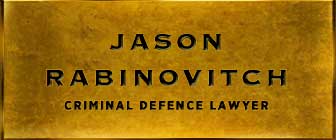Fraud
OFFENCE
Fraud is defined as using deceit, falsehood or any other fraudulent means to deprive any person or the public of any property, money, valuable security or service. It is using an act of deception or dishonesty to take something away from somebody or something (for example a company or organization). The act can be as simple as promising to do something or pay for something without having any intention to fulfill the promise once the other party has provided the property or service
The intent requirement of the offence of fraud requires the Crown to prove that the accused person subjectively:
(1) had knowledge of the act that is the basis of the fraud, and
(2) that the act could have the consequence of causing another person to lose their ownership interest in the item in question, or place that interest at risk.
If the value of the property has a value of $5000 or less, the Crown may proceed by way of indictment or summary conviction. In this case, the maximum penalty if the Crown proceeds summarily is 6 months in custody, and it is 2 years custody if the Crown proceeds by indictment. If the value of the property is greater than $5000, the matter is an indictable matter and the maximum penalty is 14 years in custody.
Does Jason defend in my local court?
What other offences does Jason handle?

PENALTY
There are a number of factors which act as aggravating factors and which will lead to an increase in the penalty ordered by the Court:
1. Where the total value of the property which is the subject of the fraud, even if it is based on multiple charges, is in excess of two million dollars, the Court is required to impose a minimum sentence of 2 years in custody.
2. Where the offender is held to be in a position of trust over the victim, this will increase the penalty, and will likely require a period of custody.
3. The Court will also increase the penalty where one of the following facts is present:
a) the fraud was of significant magnitude, planning or complexity,
b) the fraud either affected or had the potential to affect the Canadian economy, its financial markets or the public's confidence in such,
c) there were a large number of victims,
d) the fraud had a significant impact on the victims given their age, health and financial situation,
e) the accused took advantage of the victim's high regard in the community,
f) the accused did not conform to licensing requirements or professional standards that are normally expected, or
g) the accused destroyed records related to the fraud or the disbursement of proceeds from the fraud.



